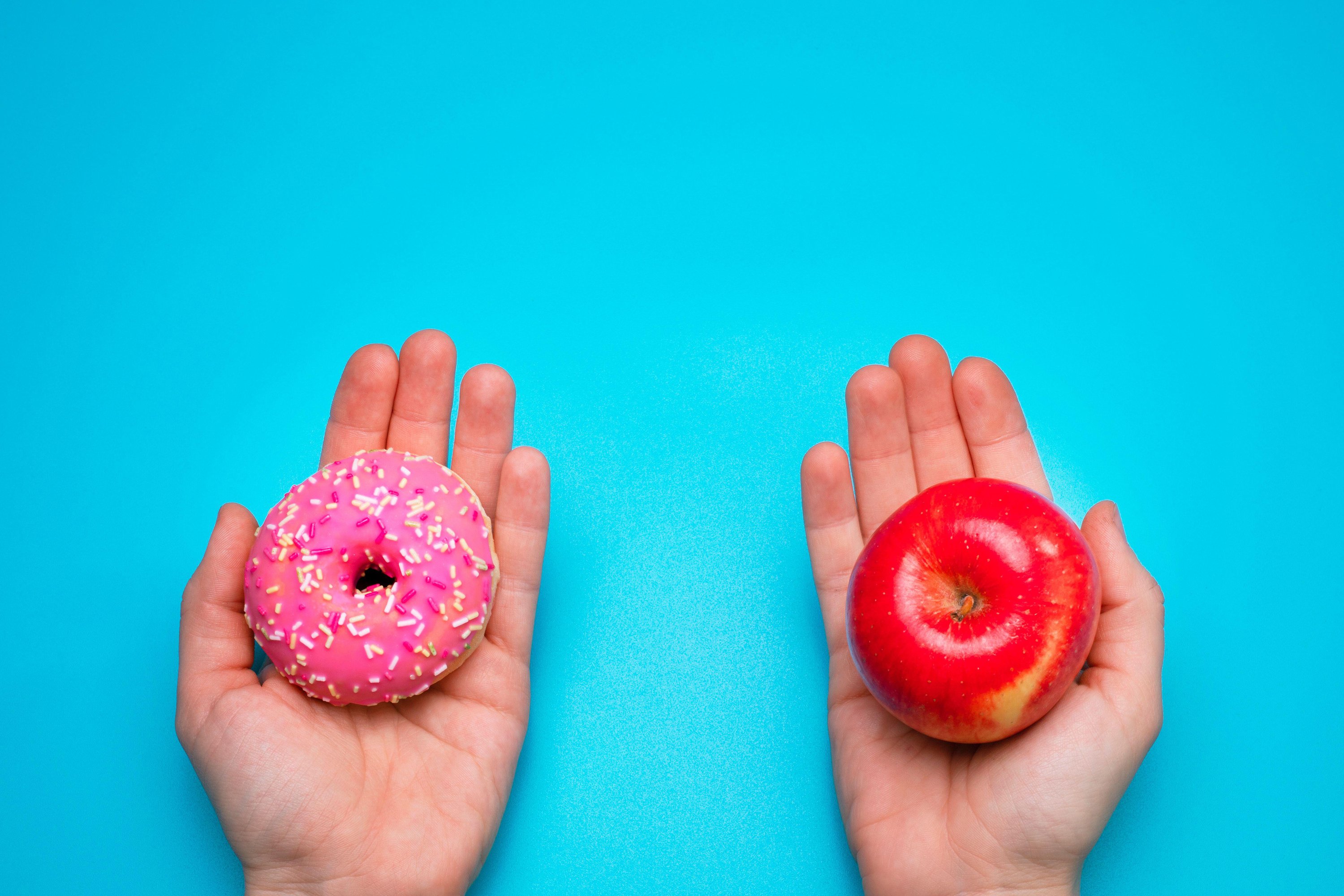If you’ve ever encountered phrases like “foods to make me lose weight” or “how to lose weight fast” on Google, you’ve probably come across some questionable tips.
When it comes to food and nutrition, especially in the context of weight loss, there are many weird diets that promise specific “results” if you follow certain “rules”. However, these dramatic dietary claims can have a serious negative impact on your physical and mental well-being, and could actually mean that you are missing out on crucial nutrition.
We asked nutrition experts to tell us about four of the most common diet statements.
Table of Contents
Eating in the evening is bad
Maybe your mom or grandma told you something like this: that your body won’t burn the carbs you eat in the evening, but instead turn that sugar directly into fat, so it’s best to avoid them later. from 6 p.m. Sounds legitimate, right? In fact, it is not that simple.
According to Lola Biggs, a registered dietitian at Together Health (togetherhealth.co.uk), “it’s more about what you eat and how much you eat than when you eat it. There’s nothing wrong with eating healthy carbs after eating. 6pm, if you choose foods such as nuts, seeds, legumes, vegetables, fruits and whole grains.
“Whether you eat carbs or not in the evening, the focus is more on serving size and making sure you burn more calories than you eat daily,” adds Biggs.
That being said, some experts think that eating over a period of time or a window can be beneficial (but that’s not the same as saying strictly that you should ban carbs in the evening!), And eating too close to the time of day. Sleeping may not be the best idea for a variety of reasons.
Pauline Cox, functional nutritionist at Wiley’s Finest (wileysfinest.co.uk), explains that eating within an eight-hour window gives your body a chance to lower blood glucose levels outside that eight-hour window. hours, reducing insulin and increasing glucagon levels., causing fat burning.
“Eating late at night often increases an already stretched window of eating, leaving little time for blood sugar levels to drop and trigger fat burning. High blood sugar levels of eating at night can also disrupt sleep, causing a breakdown of hunger hormones the next day, “adds Cox.
Gluten-free foods help you lose weight
You may have noticed an increase in gluten-free options and people opting for a gluten-free diet. This is great news for anyone with celiac disease or gluten sensitivity, who needs to avoid gluten for health reasons.
Where it can be confused, however, is when people imply that gluten-free options are simply “better” than their gluten-rich counterparts and that gluten-free diets help with weight loss.
“Getting enough heart-healthy whole grains in your diet is important because they can lower cholesterol levels and are good sources of key vitamins and minerals like iron, magnesium and B vitamins,” says Biggs.
Full fat is bad for you
Have you been attracted to “fat-free” labels on cheese or yogurt at the grocery store, thinking that means they’re healthier and an easier way to eat good food but still lose weight? Well, consuming fat doesn’t necessarily make you fat. And fat-free doesn’t necessarily mean something is healthier.
“Excess fat in your diet, the type of saturated fat, can be bad for you, but there are some high-fat foods that may be good for you,” says Biggs. “Low-fat versions can often be stripped of natural ingredients and instead stuffed with sweeteners, flavorings and artificial sugars to enhance the taste.”
Certain foods make you burn fat
Maybe you’ve been drinking apple cider vinegar, eating grapefruit early in the morning, or cooking it all with cayenne pepper because you’ve heard that these things will make you burn fat. Again, it’s not so black and white.
Some foods or ingredients won’t automatically lose weight, and you may find yourself eating weird things if you think that’s the answer.
According to Melissa Snover, a registered nutritionist and founder of Nourished (get-nourished.com), it’s more important to focus on feeling full and satisfied and getting a good range of vitamins.
“Nutritious foods high in protein and good fats are beneficial in compensating for hunger over long periods of time, which is an important tool for losing weight as it reduces overall food intake,” says Snover. If you want to make sure you eat a healthy diet. Dieting, which helps you maintain a healthy weight, making sure you are getting a good balance and variety of foods and nutrients is a wise way to go.


Comments are closed.